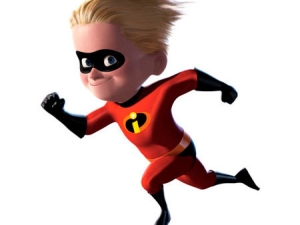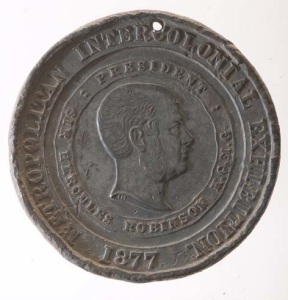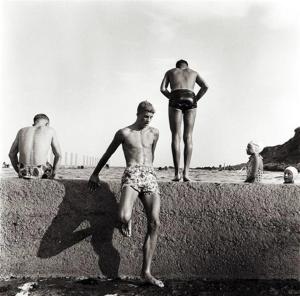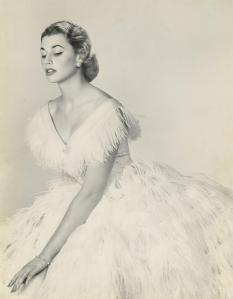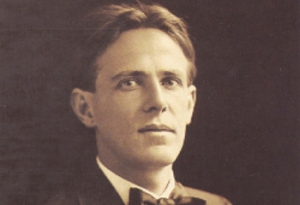Tags
American names, Arabic names, Biblical names, celebrity baby names, english names, famous namesakes, fictional namesakes, Game of Thrones names, germanic names, Greek names, Hawaiian names, hebrew names, Irish names, locational names, name history, name meaning, name popularity, names of rivers, nicknames, rare names, royal names, saints names, scandinavian names, Scottish names, surname names, vintage names, Welsh names
These are ten names given to boys which I saw only once in the birth announcements of last year. They are not all rare, but they are at least names you don’t see every day.
Aled
Welsh name, after the River Aled – a small river in Denbighshire in north Wales. Its meaning is not certain, although some have linked it with the Welsh root al-, meaning “wandering”, which suggests the winding flow of a river. Probably more importantly, in modern Welsh aled means “offspring”, making the name seem very suitable as a baby name. A historic namesake is the 15th century Welsh poet Tudur Aled, a nobleman from Denbighshire considered one of the finest poets of his time. Aled has been used as a boy’s name in Wales since perhaps the 18th century, and originated in Denbighshire. Its similarity to the name Allen must have been a help – it basically sounds like Allen with a D at the end instead of an N. A famous contemporary example is Welsh singer Aled Jones, who had a hugely successful career as a young boy, and is now a radio and television presenter. The name is still in use in the UK, although numbers have fallen. A pleasant Welsh heritage choice made familiar through a famous namesake.
Dashiell
English surname which is a corruption of the French surname de Chiel; its meaning is unknown. The de Chiel family were French Protestants who fled to Scotland escaping religious persecution in the 16th century. From here the surname morphed into Da Chiell, Da Shiell, Shiell, and Dashiell – the last seems to be first used in America, when the French-Scottish family migrated to Maryland in the 17th century. Dashiell has been used as a first name since the 19th century and was particularly associated with Maryland. The name has become famous because of the American crime novelist Dashiell Hammett, who wrote such classics as The Maltese Falcon and The Thin Man; he received his name because his mother was one of the Dashiell family of Maryland. The name has never been common even in its country of origin, but is now rather fashionable as well as having literary cachet. Actress Cate Blachett welcomed a son named Dashiell in 2001, so this is a celebrity baby name. Pronunciation is a slight issue – Dashiell Hammett said his name da-SHEEL, while these days the name is nearly always pronounced something like DASH-uhl. Said thus, it gives the obvious nickname Dash, as demonstrated by Dashiell “Dash” Parr in The Incredibles.
Eamon
Anglicised form of Éamonn, the Irish form of Edmund. The name became well known because of the American-born Irish statesman Éamon de Valera, who was a force in Irish politics for over half a century. He came to prominence as a leader during the Easter Rising of 1916 and eventually became the country’s president in 1959. Éamon didn’t retire until he was 90, making him the world’s oldest head of state. Éamon de Valera was originally named George, and later had his name changed to Edward, so Éamon was a conscious attempt to give himself an authentically Irish name. Éamon de Valera visited Australia in the 1940s, and had strong links of friendship with the Irish-Catholic community here, especially amongst the priesthood, so the name Éamon or Eamon was very well known here for many years. A famous Australian namesake is the former Olympic swimming champion Eamon Sullivan. An Irish heritage choice which is dated in Ireland, but won’t seem so here, especially as it fits in well with current naming trends.
Gilbert
Germanic name meaning “bright pledge, bright hostage”. The meaning of “hostage” makes some people uneasy, however in the past it was common for political treaties to be accompanied by the exchange of hostages, usually nobles or even royalty, as a guarantee of good faith. The name Gilbert was introduced to Britain by the Normans, and was popular in the Middle Ages. In Scotland Gilbert was sometimes used to Anglicise the Gaelic name Gille Brigte, meaning “follower of Saint Bridget”. There are a few saints with the name, including Gilbert of Sempringham, the son of a Norman lord from Lincolnshire who founded the only English religious order, the Gilbertines; they didn’t survive the Reformation in England. Gilbert was #123 in the 1900s, and left the charts in the 1990s. It returned in 2011, and is now around the 500s. This is a vintage charmer which L.M. Montgomery fans may connect with handsome Gilbert Blythe, the love interest of red-haired heroine Anne Shirley. Comes with the nicknames Gil, Gib, Bert, and Bertie.
Keanu
Hawaiian name literally meaning “the coolness”, and translated as “the cool breeze”. In Hawaii it has been given to both sexes, but mostly to boys. The name has become famous because of Hollywood star Keanu Reeves, who has some Hawaiian heritage through his American father. He’s made a name as a blockbuster action star through The Matrix series, Speed, and Point Break, but is forever famous for the cult Bill and Ted movies. He has a connection to Australia since he lived here as a baby. The Hawaiian pronunciation of the name is keh-ah-noo; Keanu Reeves says his name more like kay-ah-noo, while many seem to say it kee-ah-noo. The strong identification of the name Keanu with the actor may cause some parents to think of it as a “one person name”, although it’s attractive with a nice meaning. On one hand, the Hollywood connection makes the name familiar and easy to deal with; on the other, prepare for people to assume you are a huge fan of Keanu Reeves.
Leif
Scandinavian name from the Old Norse name Leifr, meaning “descendant, heir”. Depending on which part of Scandinavia a person is from, the name is pronounced either LAYF or LIFE. Leif has a very famous namesake, because Leif Erikson was a Viking chieftain from Greenland, the son of Erik the Red. He was described by contemporaries as a strong, striking-looking man who was wise and considerate, and regarded as lucky. Leif converted to Christianity on a voyage to Norway and preached his new-found religion to the Greenlanders. Leif Erikson is perhaps best known for voyaging to a country he called Vinland, somewhere in modern Canada, where he founded a few Nordic settlements around 1000 AD. Leif Erikson not only pushed back the date of European colonisation in North America, he helped give Scandinavian immigrants to the Unites States a special tie to their adopted country. In the United States, Leif Ericson Day is celebrated every October 9. Leif is a slightly dated name in Scandinavia, but feels fresh here. A famous Australian namesake is music industry graphic designer Leif Podhajsky.
Ptolemy
Anglicised form of the Greek name Ptolemaios, meaning “war-like”, pronounced TOL-uh-mee. The name is mentioned in Homer’s Iliad as one of the Greek warriors. Ptolemy was a common name amongst the aristocracy of Macedonia, and the name was traditional in a line of Macedonian rulers in Egypt descended from one of Alexander the Great’s generals. They were in power for nearly three centuries, and are collectively known as the Ptolemaic Dynasty; one of their most famous members is the ruler Cleopatra. The most famous namesake is Claudius Ptolemy, nearly always known as Ptolemy. He was a Greco-Egyptian Roman citizen who wrote several important scientific treatises on maths, astronomy, geography, and astrology. His work was essential to medieval knowledge, and Christopher Columbus used his work on geography as the map for his famous voyage. There is a Ptolemy mentioned in the New Testament, and two saints with the name. Ptolemy has been used as an English name since the 17th century; it sounds like the English name Tolomy, short for Bartholomew. A rare but very cool name – possibly even a little too cool.
Rayyan
Arabic name meaning “thirst quenching, well-watered, luxuriant”; in the Quran the word is used to mean “splendour”. In Islamic tradition Rayyan is the name of one of the four gates of Paradise, dedicated to those who have fasted often in their lives. A common name in Arabic-speaking countries and communities, this works well in English-speaking countries. Not only is it quite similar to popular Ryan, but the possibility of using familiar Ray as the nickname gives your son the option of complete assimilation in the future. It even sounds very slightly like the English word rain, which fits in with the Arabic meaning. A no-fuss Arabic heritage choice.
Solomon
Hebrew name meaning “peace”. In the Old Testament King Solomon was the son of King David, famed for his enormous political and military power, and fabulous wealth gained through trade partnerships. According to Jewish tradition Solomon used that wealth to build the First Temple in Jerusalem, and his reign was a Golden Age. The Bible tells us that Solomon once prayed for wisdom, and because he did not ask for something selfish, he was granted not only wisdom but many other gifts as well. Legend says he received magical powers, and the ability to control angels and demons! An enigmatic passage in the Bible describes a visit made by the Queen of Sheba to Solomon, and the Ethiopian monarchy claimed descent from Solomon. Solomon is credited with writing Proverbs, Ecclesiastes, and the Song of Solomon – one of the most beautiful works of poetry in the Bible. A central figure in Judaism, Solomon is venerated as a prophet in Islam, and regarded as a saint in Eastern Christianity. Solomon has often been used by Jewish people, East Europeans, and Africans, but has been used as an English name since the Middle Ages in honour of the biblical figure. A wise and peaceful name that might remind people of the Solomon Islands.
Tyrion
A name mostly known through popular culture. Currently it is associated with Tyrion Lannister from A Game of Thrones, played by award-winning actor Peter Dinklage. Born into privilege, Tyrion is despised by his family, and must learn to live by his not-inconsiderable wits. The cynical, debauched, bitterly intelligent Tyrion is a fan favourite, and author George R.R. Martin’s own favourite character from the series. Before that, Tyrion was a High Elf in the the 1980s role-playing game Warhammer, and a wise dragon king in the 1990s German-Australian television series Tabaluga. Tyrion is a variant of the name Tyrian, meaning “of Tyre”. Tyre was a wealthy island-city in ancient Phoenicia whose name meant “rock” because of the formation it was built on; today it is in modern Lebanon. Tyre was famous for its production of expensive purple cloth, only affordable by royalty and aristocracy; the word tyrian can refer specifically to the colour purple, and has connotations of pomp and power. You could also connect the word Tyrian to Tyr, the Norse god of war. Despite these interesting associations, Tyrian and Tyrion have been used only very rarely as personal names; however they seem like fantasy names which can still work in the real world.
POLL RESULTS
People’s favourite names were Dashiell, Solomon and Eamon, and their least favourite were Rayyan, Aled and Tyrion.
(Picture shows Dashiell “Dash” Parr from The Incredibles)

